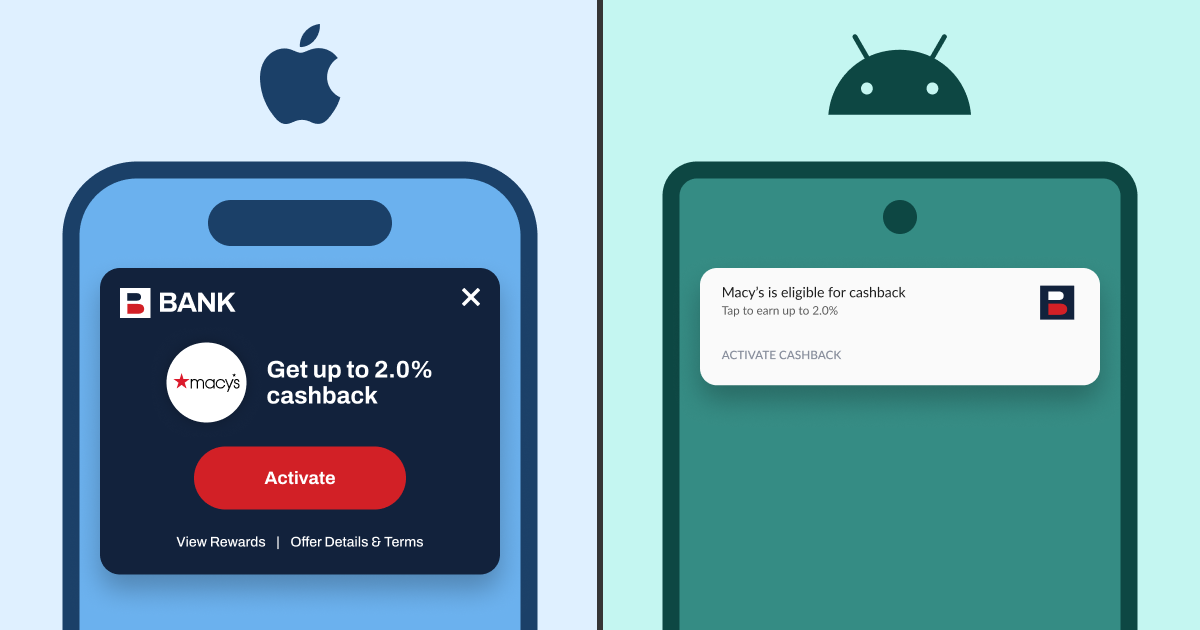An overlooked tactic of growing your affiliate program is ensuring your site is compliant with all the major network and publisher requirements for customer privacy. In light of increased scrutiny and regulation on the use of consumer data and third-party cookie usage, as well as the heightened consumer awareness on how their data is being used, addressing privacy concerns is more important than ever.
If your website / program isn't compliant, not only do you lose analytics information as well as potentially the trust of customers, you could also be missing out on revenue opportunities.
In this post we'll talk about the recent launch of an iOS Safari web extension for a customer of ours, and the fact that they had to exclude a number of merchants from having offers available in their extension because the lack of ITP compliance meant that tracking couldn’t work - users couldn’t get credit for the purchases they made and the cashback they earned!
Background on ITP
Apple in general has taken an aggressive stance on consumer privacy. They introduced "Intelligent Tracking Prevention" aka ITP as a feature in the iOS Safari web browser in 2017, to try to curb how people were tracked by advertisers and ad-tech companies. Specifically, one thing ITP does is limit companies' use of 3rd party cookies to track people across different websites. Safari now actually blocks 3rd party cookies completely. ITP only applies to iOS Safari users, but this is still tens of millions of people. Globally, iOS Safari web browser use represents about 24% of the market as of October 2021.
So, how does this relate to Safari web extensions on iPhones? Well, extensions can BE anything. For example, an ad blocker extension, or an extension that changes a website to dark mode. The extension itself has nothing to do with ITP compliance.
But, ITP is all about Apple's (and Safari's) rejection of cross-site tracking. So if an extension does something more sophisticated than turning on dark-mode, like say, giving users cashback on purchases they make online, it needs to be able to track and attribute those purchases back to the user in order to work. The reason non-ITP compliant merchant web sites were excluded from our partner’s web extension is because those merchants are still relying on the use of 3rd-party cookies to track their affiliate programs.
A History of Affiliate Marketing Tracking
So, why is this concept important? Here’s a little history. In the early days of affiliate marketing, the tracking of a publisher- or affiliate-hosted click to a merchant’s e-commerce site, and the attribution of any sale from that sale back to that affiliate, relied on an affiliate network-hosted (3rd-party) cookie on the merchant's website. Unfortunately, advertisers and ad-tech companies, as noted above, used this same design to aggressively track a consumer’s activity around the web (in fact, these cookies are what power those retargeting ads that keep showing you the same product on every other website just because you viewed a product once).
Apple decided this was a privacy problem. With the introduction of ITP, which blocks 3rd party cookies, they started breaking this design. They didn’t intend to break affiliate networks’ tracking; unfortunately, it was just collateral damage.
How Affiliate Networks Reacted to ITP
Affiliate networks responded by implementing ITP-compliant designs (e.g. cookieless tracking) for tracking affiliate referrals, commission payments, etc. But, on the merchant’s side, updating tracking requires the merchant to make some code changes in their e-commerce system and website. They can’t just flip a switch and voilà, be ITP compliant.
Unfortunately, some merchants have not had the time or resources to make this change to their tracking. Therefore, their site is not updated to these latest tracking methods, despite the affiliate networks warning them that Safari was breaking the old ways of tracking.
How is ITP compliance connected to growing your affiliate program?
Publishers/affiliates (rightly so) want the proper credit for their audience clicking through and buying something on a merchant’s site. So, they want to make sure tracking and attribution is accurate. But ITP means that any 3rd-party cookies are blocked, so any merchant sites still using this old, non-ITP-friendly method of tracking, won’t be able to properly attribute sales through any affiliate clicks to the referring publisher/affiliate.
In effect, any affiliate publisher who has a heavily mobile audience and wants credit for sales driven through their audience’s activity on mobile Safari, wouldn’t be able to participate in a merchant’s program that doesn’t have the ability to correctly credit them for sales.
What do iOS Safari web extensions have to do with this?
Safari is the first browser for iOS to offer extensions. Wildfire took advantage of this new functionality and developed an iOS Safari web extension for one of our partners, so they could offer cashback to their customers who were shopping on their iPhones using the latest version of Safari.
Now, the way Wildfire enables cashback for our partners using our white-label loyalty and rewards platform relies on accurate affiliate network tracking. So if that tracking is not even present, as in the case of merchants whose 3rd-party cookie tracking is blocked because of ITP in Safari, we are not able to properly track and attribute consumers’ e-commerce purchases and resulting cashback earnings through our partners.
This means when we launched a cashback iOS Safari web extension for our partner, we had to effectively bar any merchants that still had the old tracking methods still in place… since the end-user consumer will ultimately never get credit for their cashback in Safari - which would completely break the experience.
The financial impact of not being ITP compliant
The merchants who we had to suppress from this partner’s program experienced a real opportunity cost by not being able to participate. Looking at our data, we can see that a single average-sized merchant is already missing out on $21k annually in affiliate program sales JUST by being excluded from Wildfire's white-label iOS Safari web extension on a single partner.
Multiply that impact out through:
- the rest of Wildfire's partners,
- plus the entire affiliate publisher space,
- and then consider that we've only just begun seeing the tip of the iceberg that is the death of the 3rd party cookie.
Altogether it paints a pretty scary picture for merchants that have not yet implemented cookieless tracking on their site for one reason or another.
The upshot - what this means to grow your affiliate program
At Wildfire, we care a lot about this issue because our business model relies on our partners’ success, and when our partners have to miss out on revenue because they can’t participate with our entire network of merchants, we feel it. We’re pushing the networks and merchants to update their tracking methods. But for an individual merchant looking to grow their affiliate program, it's no small amount of work to make the change and remove the use of 3rd-party cookies. Given the data above about missed opportunities for earnings, in the long run, we feel it's worth it as privacy concerns & legislation continue to become widespread.
Today it's only Safari and Brave browsers blocking 3rd-party cookies; tomorrow it could be Chrome with its roughly 65% of browser market share. (By the way, did you know Chrome can block 3rd-party cookies now? Oh yeah. It’s a setting users can edit, but it currently is not enabled by default.)
For these reasons, merchants who want to maximize and grow their affiliate program would be wise to look for alternate solutions so they can stop relying on any 3rd-party cookie tracking or other consumer-privacy-unfriendly methods that might block them from participating in lucrative publisher partnerships.





